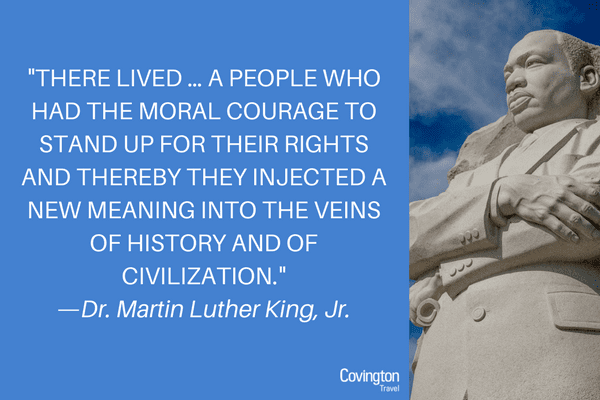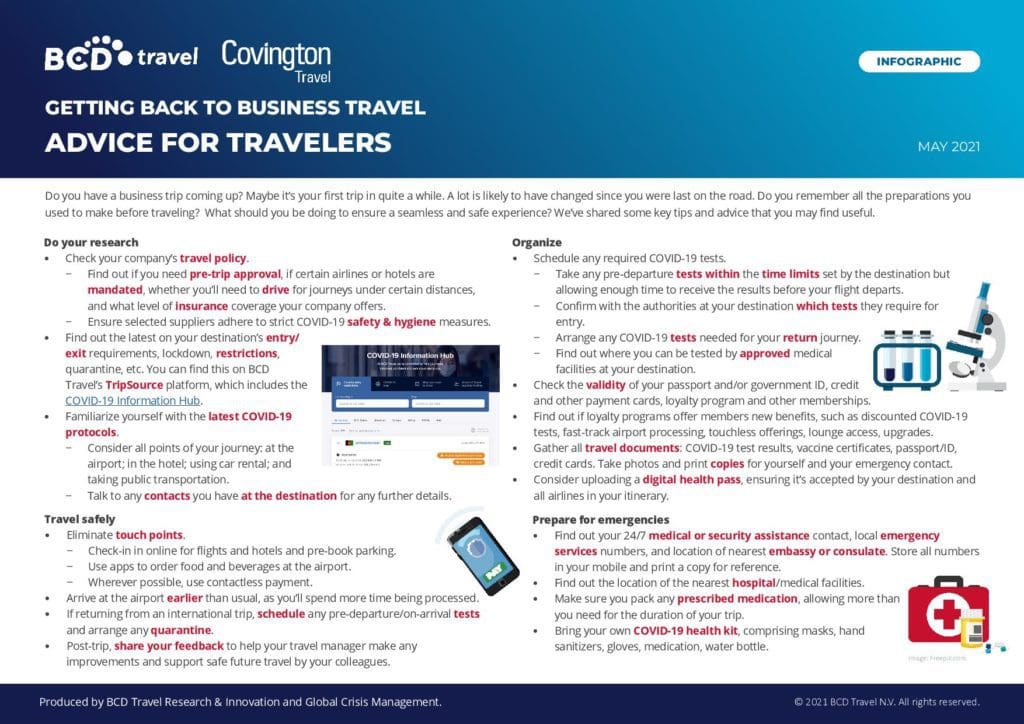America, and particularly the Deep South, has struggled with racial injustice – first with slavery, then with segregation and unequal voting rights. We’ve come a long way since then, and it’s important to acknowledge both these civil rights violations and the freedom fighters who were instrumental in changing the country’s attitudes and laws. In honor of Black History Month, I’d like to recommend a visit to any of these powerful civil rights museums and sites in the South.
National Civil Rights Museum, Memphis, Tennessee – Located at the Lorraine Motel where Rev. Martin Luther King, Jr. was assassinated, the National Civil Rights Museum will observe the 50th Anniversary of the death of Dr. Martin Luther King Jr. in a yearlong commemoration from April 4, 2017 – April 4, 2018. MLK50 – Where Do We Go From Here will include signature events and activities in tribute to Dr. King’s legacy. An interactive exhibit, Voices of the Civil Rights Movement, illustrates America’s journey to civil rights, from our country’s founding through the 1970s.
Central High School, Little Rock, Arkansas – Some of the most dramatic civil rights conflicts over segregation took place on the steps of this school when huge crowds taunted “the Little Rock Nine” and federal troops were called in. Today a National Park Service visitor’s center across the street from the school explains the Little Rock Crisis in exhibits. Guided tours of the high school (which is still operating) are available during the school year.
Alabama Civil Rights Trail – Many of Alabama’s civil rights-era sites have been preserved and opened to the public. Download the free app to discover civil rights landmarks across the state. Birmingham’s Civil Rights Institute is the nation’s largest civil rights museum. At the Civil Rights Memorial in Montgomery, visitors can sign the Wall of Tolerance, pledging to promote racial justice. At the Rosa Parks Museum in Montgomery, you can step back in time and see a 1955 Montgomery city bus. In Selma, walk across the Edmund Pettus Bridge, made famous by the violent confrontation in 1965 that helped rally national support for the Civil Rights Movement.
Martin Luther King Jr. National Historic Site, Atlanta Georgia – This National Park Service site offers a moving biography of Dr. King and excerpts from his most famous speeches. Tour Dr. King’s birth home and visit the historic Ebenezer Baptist Church where he first preached. Pay respects at his final resting place and visit the King Center for Nonviolent Social Change.
National Center for Civil and Human Rights, Atlanta, Georgia – This center is located in a city that has a legacy of civil rights leadership. It offers powerful and authentic stories, historic documents, compelling artifacts, and interactive activities that connect the American civil rights movement to today’s global human rights movements.
International Civil Rights Center & Museum, Greensboro, North Carolina – This museum celebrates the nonviolent protests of the 1960 Greensboro sit-ins that served as a catalyst in the Civil Rights Movement. The Woolworth’s lunch counter and stools where the protests took place are on display, still in their original places. The museum also depicts the full scope of segregation, from hotels to transportation.
The Capitol Square Civil Rights Memorial, Richmond Virginia – This carved granite monument on the grounds of the Virginia State Capitol commemorates protests initiated by 16-year old Barbara Rose Johns at her high school in Farmville, Virginia that ultimately resulted in the famed Brown. V. Board of Education case. The blacks-only school is preserved at the Robert Russa Moton Museum, one of 41 stops on Virginia’s self-guided driving tour, the Civil Rights in Education Heritage Trail.
The National Museum of African American History & Culture, Washington, D.C. – This newest Smithsonian Museum opened in September 2016 after 13 years of planning with more than 36,000 artifacts and interactive exhibitions that explore African American history and culture. The building is on the National Mall, adjacent to the Washington Monument. Travel Maestro tip: As a Smithsonian Museum, entry is free, but you must get a timed entry pass online the day of your visit.
These civil rights museums tell the stories of prejudice and the brave Americans who worked to correct it. They are important because they let us as a nation continue the healing process and educate us to not allow future injustice against any people – a hallmark of Democracy. For assistance in planning a trip to visit any of these important civil rights sites, contact the vacation advisors at Covington Travel.








Leave a Reply